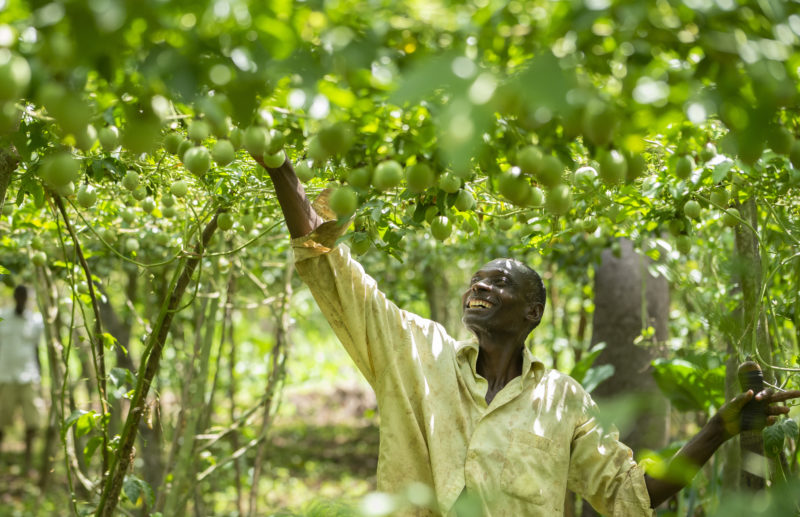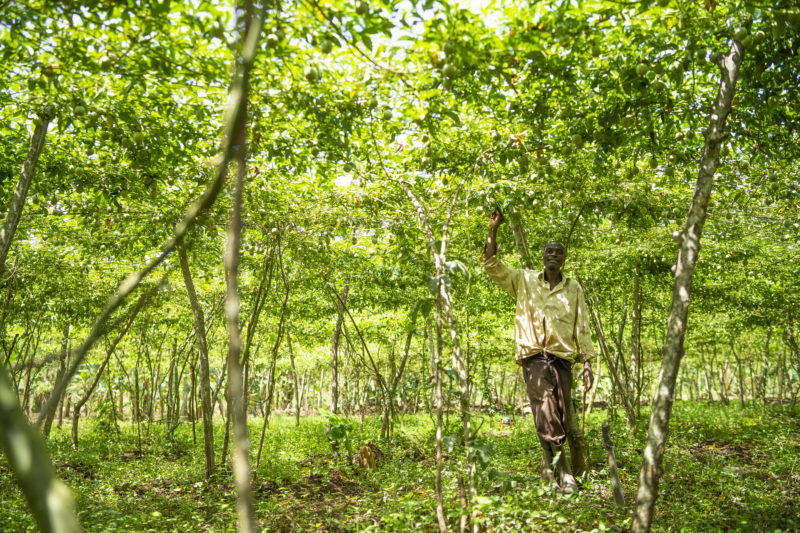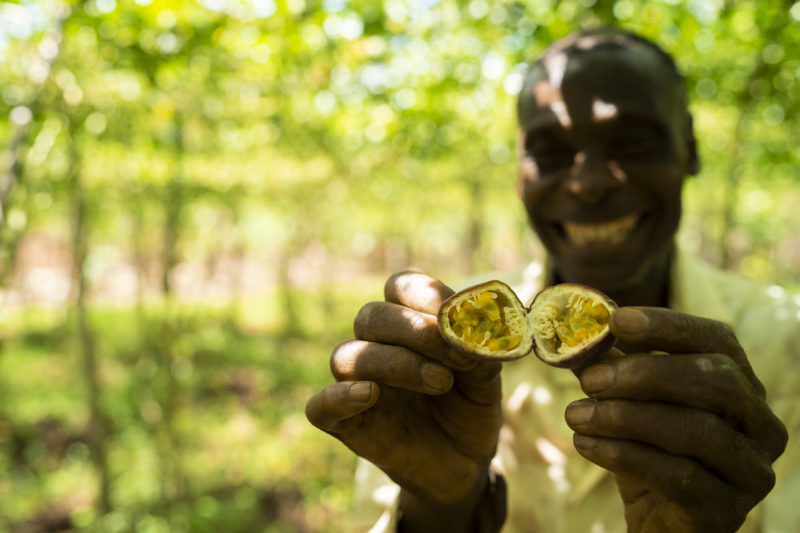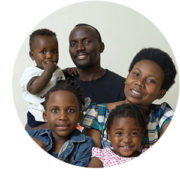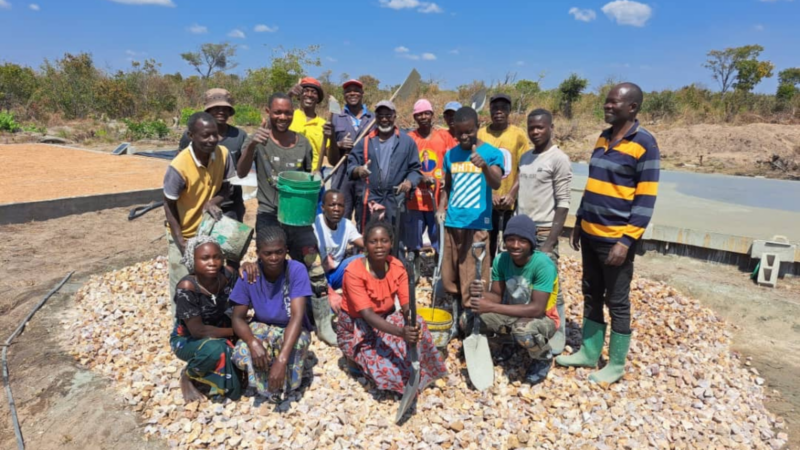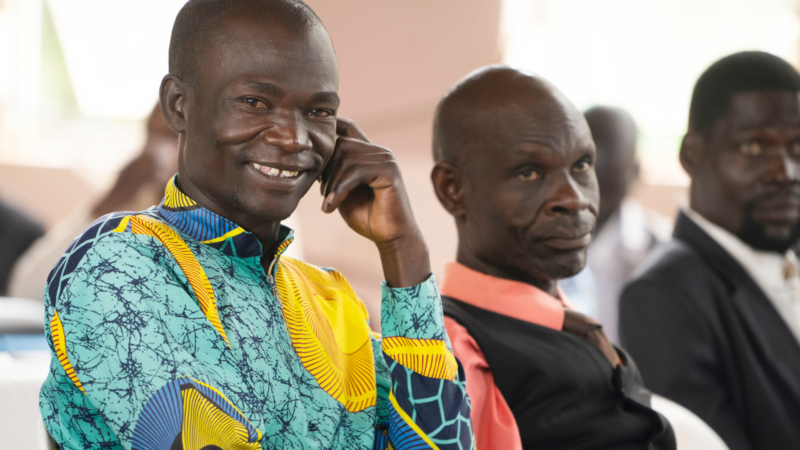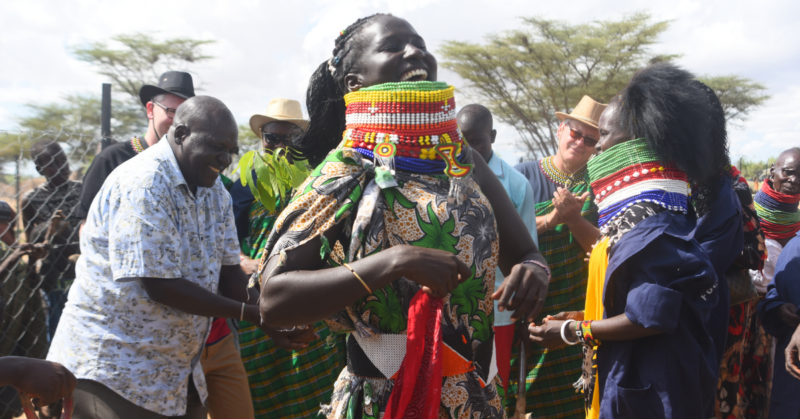You cannot give what you do not have.
Growing up in poverty, I was always in constant need of things, from school fees, a bed of my own, shoes that fit, and clothes that other children in society did not ridicule. Coming from a family of ten siblings, we always shared everything from beds, clothes, shoes, and food.
I learned at an early age that providing food for your family was the best thing you could give them, and you needed no economic empowerment for that. When I was younger, our mother made sure that there was enough food in the garden to feed us. Having a garden meant that my siblings and I grew the food, which felt like “torture” as a little boy. However, as an adult, I appreciate the process of learning how to grow food with my family.
Before joining Bright Hope, I always wanted to help vulnerable people, but my perspective of what that looked like was distorted.
When I was growing up, I received many handouts from many people. I am indeed grateful to those who helped me become it has led to who I am today. However, I am most thankful to the man, Mr. Ssembatya, who taught me how to work. He was a husband to my Auntie; he wasn’t well educated, but he taught me the most important life lessons.
While living in his home, Mr. Ssembatya woke me up at 5 am every day to work on building sites in the garden and sand fields. He didn’t have a lot, but he gave me all he had. What he taught me was more important than what I learned at school, which was the gift of work.
With Bright Hope, I understand the desire to support someone in extreme poverty. However, there are no “handouts” that could ultimately do that.
When I was gathering content on the field with Bright Hope, I was struck by the parallel of the stories captured to my own story as a young boy. I was challenged and remembered how my mom would sustainably provide for my family by growing our food at home. The stories of the families I was capturing all produced their food through Bright Hope’s sustainable training.
And here I was, buying my food as an adult.
I went back home and had a sit-down with my wife. We realized that even with our jobs, we still held a poverty mindset of thinking that saving money would bail us out. We still spent that money on food and other necessities. So, we picked all our savings and risked it all. My wife and I bought land by the lake and decided to do farming. We are not out of the woods yet, but we never have to buy chicken or eggs since we have enough from our farm. We are investing in our future!
This step has opened more opportunities. For example, we have provided work for two people who care for our animals – the goats, rabbits, and chickens. In turn, they can also take care of their families because of their employment.
Another example of this transition would be the new knowledge and experience.
I have learned a lot about keeping animals so that I can relate to and advise farmers involved with Bright Hope programs. The community around our little farm has also picked an interest in keeping animals, and amazingly they come to consult with us on how to do it. We are not experts, but we help in the ways we can. The best part is that we have started a savings group with the community, thanks to Bright Hope’s Saving for Life program, and people are excited about it.
In short, you can only give what you have, and Bright Hope has made me see this. Thank you, Bright Hope, for opening my eyes to how I can play a part in helping my community.
Learn More About Bright Hope
When Hope for Today Makes Tomorrow Possible
Hope for Tomorrow: Sometimes Poverty Alleviation is Simple
Hope for Eternity: Jesus Cares for the Poor
Bright Hope, a Holistic Ministry Meeting the Needs of the Poor

